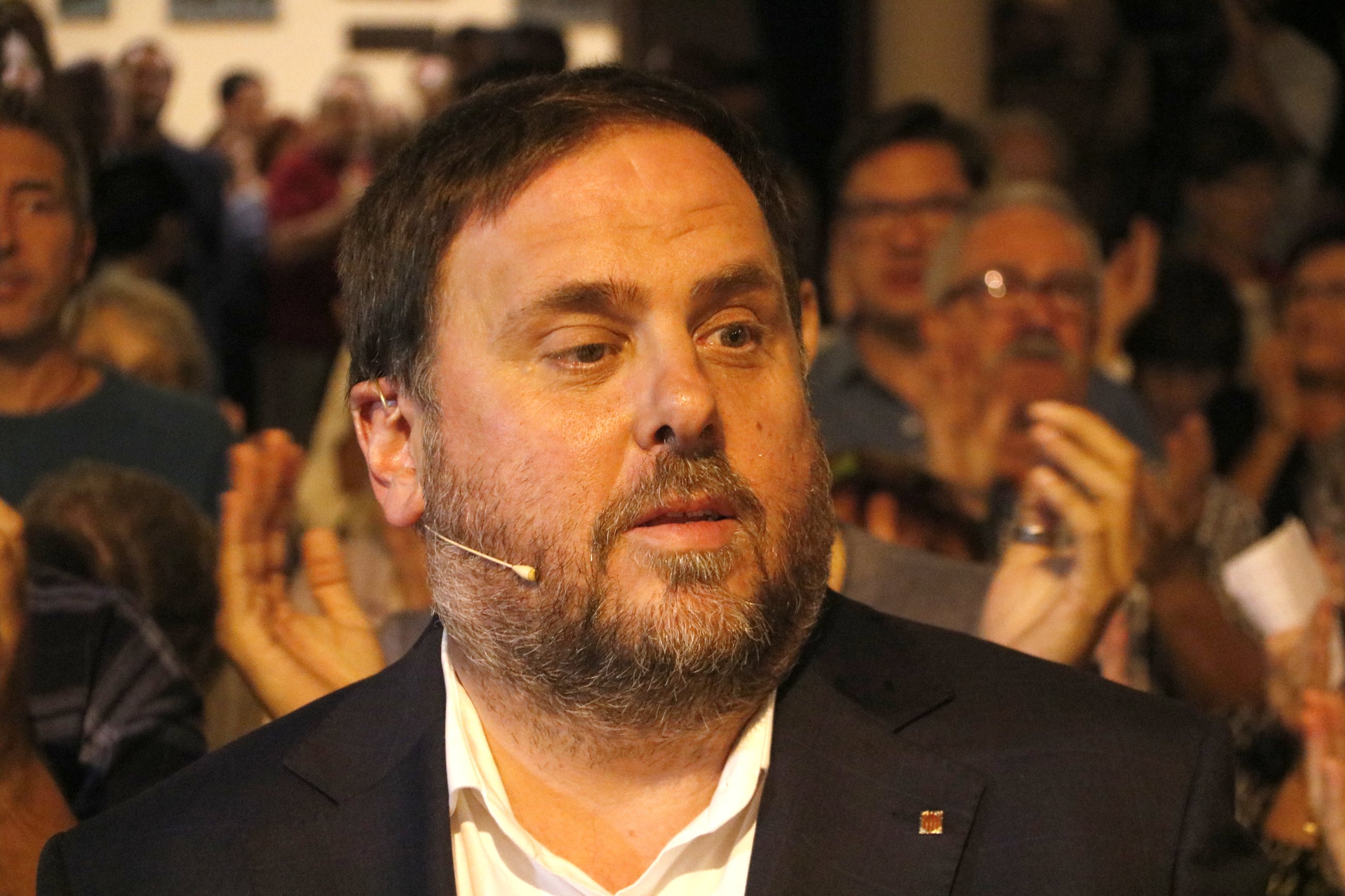Spain's Supreme Court has closed off another option for Oriol Junqueras. The court has decided to keep the Catalan vice-president, who has been in Estremera prison near Madrid since 2nd November, in preventive detention. Now Junqueras, if he decides to try again, will have to present an appeal to instructing magistrate Pablo Llarena, as already done by his fellow inmates Joaquim Forn, Jordi Sànchez and Jordi Cuixart.
The criminal chamber has not accepted the bet on dialogue and bilaterality made during the election campaign and in ERC's party manifesto as defended by Junqueras during the appeal hearing.
The vice-president "hasn't wavered from this personal commitment demonstrated in his political career and based on his moral convictions", said his lawyer, Andreu Van den Eynde, leaving the hearing on Thursday. He added that Junqueras had defended the use of peaceful options.
Junqueras argued for his right to freedom, to political representation and to defend himself with guarantees. He presented himself to the court as a "man of peace" and a believer, aiming to be allowed to leave Estremera prison where he has been held for 63 days.
The public prosecutor had asked for Junqueras to be kept in prison. They expressed a lack of confidence that he can carry out his political work and described the Catalan government as a criminal organisation with a route map to carry out an independence referendum and later create a republic.
Van den Eynde, before the decision was announced, expressed his regret that the subject of politics was "taking up the whole conversation".
The decision was taken unanimously by the three judges who make up the appeals chamber, after determining that "there is evidence of the commission by Junqueras of crimes of rebellion, sedition and misuse of public funds", and that there is also "a notable risk" of him reoffending.
The order, reported by judge Miguel Colmenero, starts by highlighting that defending the political option of independence of some part of the territory of Spain is legitimate, given that the Constitution allows for the defence of any political position, but that it "must be championed without committing any crime". The Supreme Court believes that the acting vice-president hasn't kept to this theoretical position, but that he has gone "much further, taking part as vice-president in a plan to unilaterally declare independence contrary to the verdicts of the Constitutional Courts".

